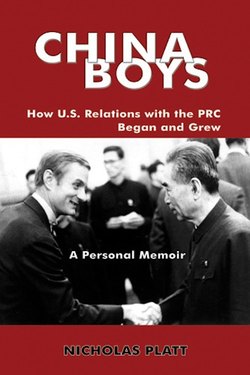Читать книгу CHINA BOYS: How U.S. Relations With the PRC Began and Grew. A Personal Memoir - Nicholas MD Platt - Страница 31
На сайте Литреса книга снята с продажи.
The Origins of Upheaval
ОглавлениеMost simply, as we pieced it together over time, leftists in the party, led by Chairman Mao, his wife Jiang Qing, and Army Chief Lin Biao, had organized and launched the movement in an effort to restore the primacy they had lost when the Great Leap Forward collapsed in 1959. Ever since the victory of the Communists ten years earlier, the party had been divided between those who believed that you could use the same techniques to run a nation state that you used when you seized power—mass campaigns of struggle and attack––and those who felt you needed more practical approaches. Tension between the “red” and the “expert” factions were the Yin and the Yang of Chinese politics.
The failure of the Great Leap—a huge mass political effort to force the Chinese economy to new heights, mobilizing the people to build blast furnaces in their backyards, and reorganizing the Chinese peasantry into agricultural communes—had discredited Mao and the “red” approach. Millions starved as agricultural production fell. The alliance between the Chinese and the Soviets fell apart, and the industrial economy suffered as Russian experts abruptly left the factories they had designed. Pragmatic elements in the party, led by Liu Shaoqi and Deng Xiaoping, gained steadily in power and prestige throughout the first half of the sixties. Brooding, Mao came to the conclusion that his revolution was dying because two key elements of society were rotten through with bourgeois influence—the party and the youth. He decided to turn one against the other in one climactic purifying event—the Cultural Revolution.
